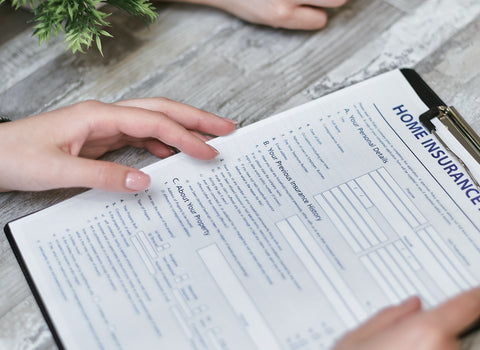
A natural disaster can strike when you least expect it, so it’s essential to always be prepared. There are many aspects when it comes to ensuring your safety and minimizing the negative effects of such emergencies, yet surviving a calamity is often just the beginning of an uphill battle.
Getting hazard insurance helps ease the recovery process for those who suffered from a natural catastrophe. Learn more about the types of disasters typically covered by insurance, who needs it, and how exactly it works in this guide.
What Is Hazard Insurance?

The purpose of hazard insurance is to cover some expenses individuals incur during natural disasters. While every policy is different, such insurance usually only applies to the structure of your home and doesn’t refer to the costs related to injuries.
Hazard Insurance Vs. Catastrophe Insurance
Hazard insurance is often confused with catastrophe insurance. However, there is a slight difference between the two terms. Hazard insurance usually covers natural disasters and can refer to a relevant section of a general homeowners policy.
Catastrophe insurance, on the other hand, offers more far-reaching coverage, applying to man-made disasters as well as natural ones, and is in most cases a standalone policy.
What Exactly Does Hazard Insurance Cover?

Hazard insurance usually covers the expenses related to damage caused by such emergencies as:
- Fire and smoke
- Lightning
- Storms
- Explosions
- Volcanic eruptions
- Fallen trees
- Hail and sleet
Some calamity insurance policies also cover the following events:
- Vandalism
- Theft
- Damage caused by vehicles or aircrafts
All these emergencies fall into the low-probability and high-cost category and are usually excluded from standard homeowners insurance policies.
Besides, there are different types of assets hazard insurance can cover, such as:
- Dwelling - This type of policy can help you in case the physical structure of your home is ruined, like when fire damages the walls or hail dents the siding.
- Other structures - Some hazard insurance providers extend their coverage to structures outside the house, like fences, garages, or sheds.
- Personal property - Such coverage is meant to protect personal belongings that could get damaged during a natural disaster, like clothes, electronics, housewares, and beyond.
Damage Not Covered by Hazard Insurance
In some areas, insurance providers choose to exclude the damage related to certain types of natural disasters from their coverage, as it would be too costly for them. For instance, a property located on a beach in Florida would be a lot more susceptible to hurricanes and storms, while a lot of homes in California are likely to encounter earthquakes.
If you reside in a high-risk area, you may need to opt for a separate hazard insurance policy, like a flood or landslide-specific option.
How Hazard Insurance Works

Hazard coverage can be included as a subsection of a homeowners insurance policy or require a separate agreement. To ensure maximum protection and be prepared for the majority of natural calamities, check that your insurance policy package has a list of the specific hazards for which the damage costs would be reimbursed.
The amount of insurance for natural disasters you should be opting for depends on the expenses you would bear to restore your home after a potential catastrophe. This sum may differ significantly from the property's actual value in the current real estate market.
Hazard insurance policies are usually valid for one year and have to be renewed afterward.
Deductibles and Limits
In the event that you have to file an insurance claim due to a covered hazard occurring, you should be prepared to pay a deductible. It’s the sum of money you have to contribute out of your pocket before the insurance issuer covers your claim. The deductibles vary from one case to another and should be specified in your insurance policy.
Every disaster insurance coverage also has a limit, which is the maximum sum your insurer will contribute. If the expenses associated with the covered natural disaster are higher than that amount, they will be your responsibility.
Do You Need Hazard Insurance?

In 2019, the estimated global economic losses from natural disasters equaled $133 billion. Even the locations that are considered generally safe can’t avoid unpredictable events like a gas explosion or a tree falling during a storm. Thus, while people living in areas prone to natural disasters may benefit from it more, it’s safe to say that every homeowner needs hazard insurance.






